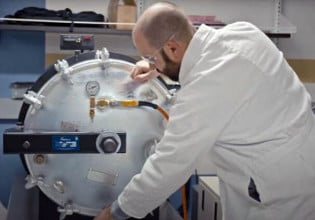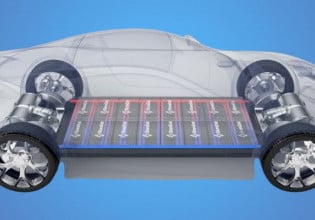At yesterday's 67th meeting of the Electrochemical Society of Japan, the Energy Devices Division of NEC Corp. (Tokyo, Japan) announced its development of a high-energy density, electrochemical, proton-polymer battery. The company plans to begin delivering samples of these unique devices in October of this year. Initially, these batteries will be offered in two form factors, a credit card shape and a prismatic package.
"Use of redox reaction, achieved with the use of protons, gives 10 times the energy density of double-layer capacitors and a similar level to that of lead-acid batteries," according to a company official. "As materials such as metals and halogen are not used, the environmental load of the device is reduced. The polymer consists of carbon, hydrogen and nitrogen and does not include any of the pollutants used in other batteries."
These batteries offer current discharge rates 20 times higher than lead-acid batteries. A 200mAh device can provide a current of 9A for 10 seconds. In addition, these devices can be recharged in only five minutes. NEC claims a cycle life of several tens of thousands of cycles. As a result, replacements should not be necessary and the new proton-polymer battery can be soldered directly onto the circuit board.
This patented technology uses an indole derivative polymer for the positive electrode, and a quinoxaline derivative polymer for the negative electrode. A sulfuric-acid electrolyte is used. Applications for these batteries are expected to include RF modules for Bluetooth short-distance communications and backup battery uses such as cellular phone memories. Hybrid-electric and fuel cell vehicles are expected to be among the future uses for this technology. Pricing has not been announced.






